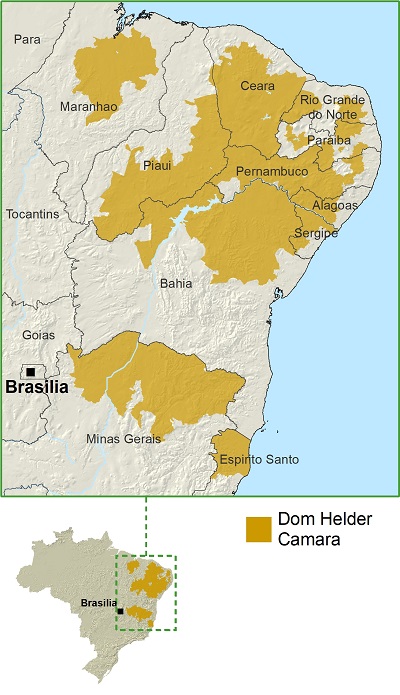Policy Coordination and Dialogue for Reducing Poverty and Inequalities in Semi-Arid North-east Brazil
IFAD Asset Request Portlet
Asset Publisher
Policy Coordination and Dialogue for Reducing Poverty and Inequalities in Semi-Arid North-east Brazil
The overall goal of this project – also known as the Dom Helder Câmara Project, Phase II – is to reduce rural poverty and inequality in the semi-arid north-east of Brazil. To reach this goal, it works to improve policy dialogue, territorial planning and coordination of public policies and programmes.
The project's other development objectives include efforts to:
- Experiment with – and promote the dissemination and scaling-up of – innovative work methodologies and new production alternatives and technologies to support rural communities and family farmers
- Strengthen the capacities of rural communities, agrarian reform settlements and their organizations to participate in decision-making on public policies and development processes
- Promote increased family income based on an agro-ecological approach that improves living conditions in the semi-arid context
- Contribute to the reduction of gender, generational, racial and ethnic inequalities.
The project aims to reach the population in the core project area and beyond. The core area comprises 129 municipalities in nine Territories of Citizenship in seven states. Participants in state-level projects co-funded by IFAD in Bahia, Ceará, Paraíba, Piaui and Sergipe will also benefit from innovations and successful experiences tested by the project. In addition, the poor rural population of the whole semi-arid north-east will benefit from enhanced public rural development policies.
